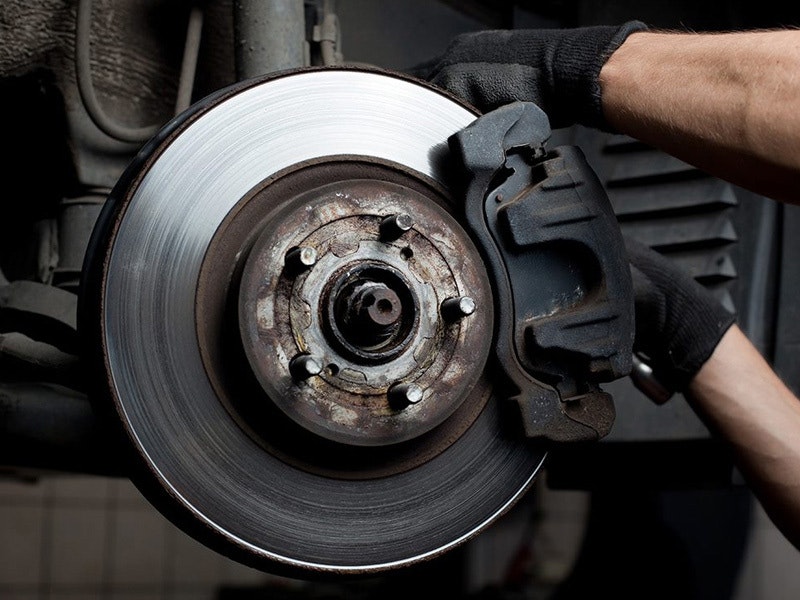Brake Repair
Explore Hyundai Brake Repair and Frequently Asked Questions
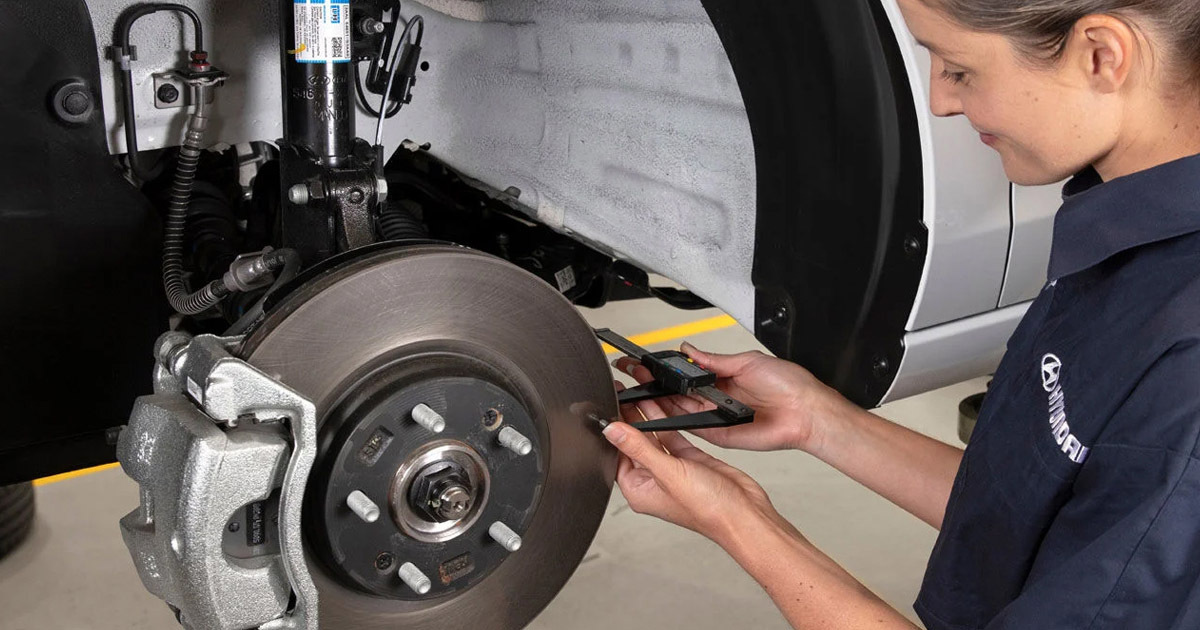
Brake Repair in Edmonton, AB
The braking system represents your vehicle's most crucial safety feature, engineered to provide precise, reliable stopping power. Over time, friction components like brake pads and rotors are designed to wear down and require replacement to maintain their effectiveness. At Northstar Hyundai, our trained technicians are experts in servicing sophisticated hydraulic and electronic braking systems found in every vehicle we sell, from compact cars to large family SUVs. We use genuine parts and follow manufacturer-specific procedures to ensure every repair restores your vehicle's braking performance to factory standards.
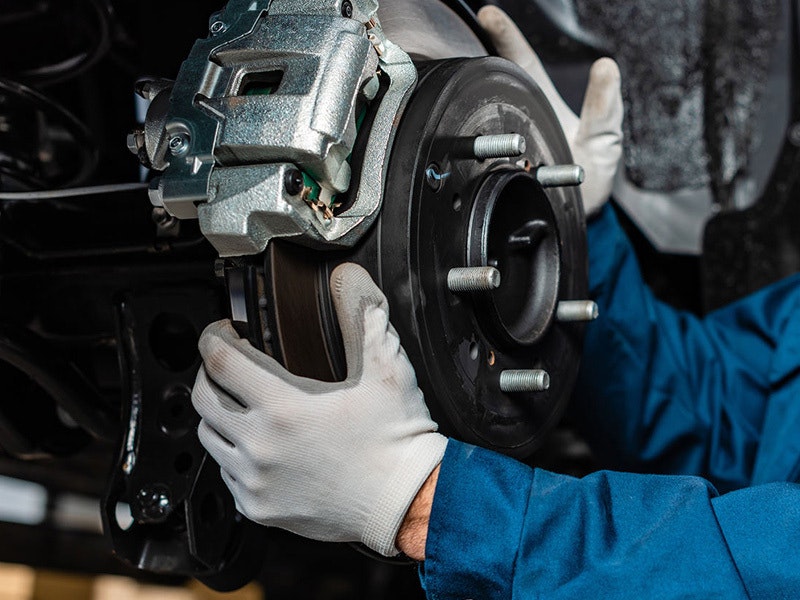
The Mechanics of Braking Systems
Your vehicle's braking system is a marvel of engineering that translates simple pedal pushes into an immense stopping force. When you apply pressure to the pedal, a master cylinder pressurizes hydraulic fluid and sends it through networks of lines to the wheels. This pressurized fluid forces callipers to clamp down, pressing high-friction brake pads against spinning metal rotors effectively. This converts the vehicle's kinetic energy into heat, bringing it to a safe stop. This basic function is enhanced by sophisticated electronic systems like Anti-lock Braking System and Electronic Stability Control, which modulate brake pressure at individual wheels to prevent skidding and maintain control.
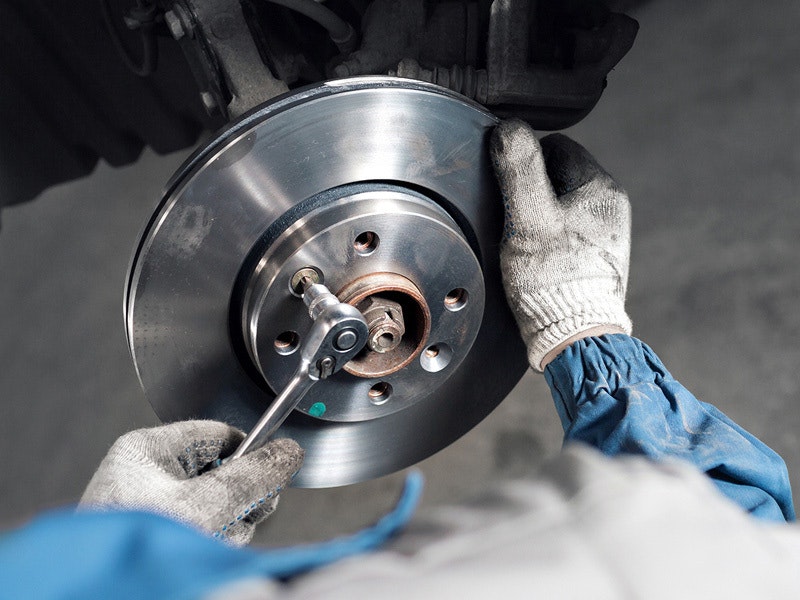
Identifying Common Brake System Issues
The most frequent alert includes high-pitched squealing sounds, which are intentionally designed to signal that brake pads are worn thin and need replacing. If this is ignored, it can progress to harsh grinding noises, indicating metal-on-metal contact that can quickly damage other components throughout the system. Other critical symptoms include your vehicle pulling to one side while braking, brake pedals that feel soft or spongy underfoot, or noticeable vibration felt through steering wheels. Any of these signs, especially illuminated brake warning lights on your dashboard, demand immediate professional attention to restore the integrity of your braking system.
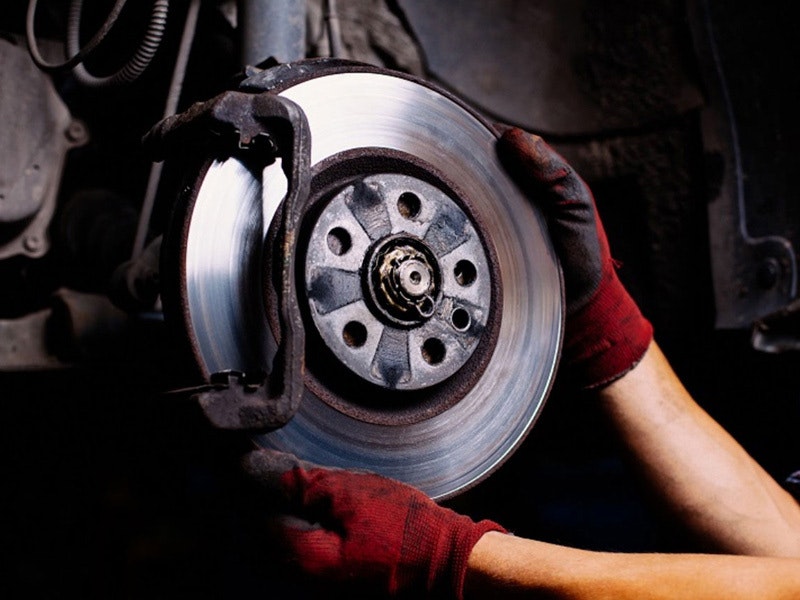
Hyundai Brake Repair FAQ
How do I know if my brakes need repair?
Common indicators include grinding or squealing sounds, a vibrating steering wheel, or a brake pedal that feels unusually soft when pressed. Your vehicle might also pull to the left or right during braking, which signals a potentially dangerous imbalance in the system. Timely inspection is crucial, as faulty brakes can compromise the function of advanced collision-avoidance systems.
How often should I have my brakes checked?
A professional brake inspection is recommended at least once per year or roughly every 20,000 kilometres to ensure all components are functioning correctly. Your driving habits and the demanding Edmonton climate can accelerate wear, so more frequent checks may be necessary if you often drive in stop-and-go city traffic. This proactive approach helps identify minor issues before they become major safety concerns.
Why are my brakes making a squealing noise?
A consistent high-pitched squeal is most often caused by the built-in wear indicators on your brake pads, alerting you that they are near the end of their service life. Temporary squealing can also be caused by moisture or light surface rust on the brake rotors after the car has been parked, which usually disappears after a few stops. If the noise persists, it is a clear sign that your pads require professional inspection.
What's the difference between brake pads and rotors?
Brake pads are the consumable friction material that directly contacts the rotors, which are the large metal discs that spin with your wheels. When you brake, the pads clamp against the rotors to create the friction needed to slow the vehicle down. The size and composition of these parts are specifically engineered to manage the weight and performance of different vehicle types, from sedans to three-row SUVs.
How long do brake pads and rotors last?
The lifespan of brake pads and rotors typically ranges from 40,000 to 100,000 kilometres, but this varies greatly based on driving style and conditions. Components will wear out faster with frequent hard braking, navigating hilly terrain, or consistent city driving. Following the recommended maintenance schedule is the most effective way to ensure their longevity and performance.
Why does my car pull to one side when braking?
Pulling to one side is usually caused by a problem in the hydraulic system, such as a sticking brake calliper or a blocked brake hose. This results in uneven braking force being applied to the wheels, creating a dangerous handling imbalance. While the vehicle's electronic stability control may help compensate, the underlying mechanical fault requires immediate repair.
Can I replace just the brake pads without replacing the rotors?
In many cases, brake pads can be replaced on their own, provided the rotors are still within the manufacturer's thickness tolerance and are not warped or deeply grooved. However, for the best and safest performance, it is often recommended to resurface or replace the rotors at the same time. This creates a perfectly smooth, new surface for the pads to bed into, ensuring quiet and effective braking.
Can I drive with a brake warning light on?
It is highly unsafe to continue driving with a brake warning light illuminated on your dashboard, as it signals a serious potential failure. The light could indicate critically low brake fluid, a loss of hydraulic pressure, or a malfunction in the anti-lock brake system. You should pull over safely and have your vehicle inspected by a professional as soon as possible.
How long does a brake repair usually take?
A typical front or rear brake service, including the replacement of pads and rotors, can usually be completed in one to two hours. More complex repairs involving brake callipers, lines, or master cylinders will naturally require more time for proper diagnosis and service. Vehicles featuring an electronic parking brake also require an extra step to put the system into service mode, which is a standard procedure for our trained technicians.
Trusted Hyundai Service Department in Edmonton
When your brakes start making strange sounds or don’t feel right when you press the pedal, it's time to act before a small problem becomes something serious. Trust our trained technicians at Northstar Hyundai to identify and fix any brake system issues using genuine Hyundai parts. We deliver thorough brake inspections and repairs that keep you and your family safe. Don't take chances with safety—visit us at 14803 137 Ave NW, Edmonton, AB, or call us at 780-478-7669 or schedule an appointment online.
